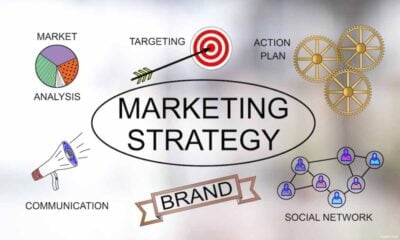New Zealand
7 TIPS to Kick-start Social Media in Your Business
If the term ‘Social Media’ is relatively new to you, then you may have not yet pondered the benefits of promoting your business by using this media.

If the term ‘Social Media’ is relatively new to you, then you may have not yet pondered the benefits of promoting your business by using this media. To find out whether social media is going to work well your business it’s really quite simple, I have just two questions for you to answer:
In relation to your business, do you:
1. Have a story to tell?
&/OR
2. Important news to share?
If you have answered yes to either of the above, then Social Media is definitely going to be a good move for your business. So then, what next you might ask?
First and foremost, you need to be sure that your company understands what social media is all about:
- Enabling conversations with your target audience.
- You cannot control these conversations, but you can influence them.
… and by influencing the conversation you are building genuine and real relationships with your target audience. - And remember this… You CANNOT aim to just sell the product but you CAN aim to build relationships… If all you do is try and sell then your audience will not be interested in you!
There is a myriad of Social Media tools out there and it pays to do your research to find out which will suit your business. Having a Social Media Strategy is then necessary to identify those tools that are going to work best for your business.
Let’s get you started on your Social Media Strategy, with some key points to work through:
Action # 1
Identify those main target groups for your business. Build a picture of a fictional person(s) that represents the main user group(s) for your site.
- Who are they?
- What do they do?
- What do they want?
- What are their goals and motivations?
- What are the outcomes they want?
Action #2
Create a community concept for your target group(s).
To be successful with this, you must:
- Entertain
- Educate
- Collaborate
- Communicate
Action #3
Identify those words that your online visitors use to describe tasks.
- These words can then be used as tags across all your social media profiles.
- They are likely to be very different to the words you or your industry uses.
- Determine the top 10 keywords or phrases a visitor would use to describe that task.
Action #4
Establish a biography for your brand:
For example a New Zealand business – 80 Minute Game, has used the following for their bio –
“Kia ora and welcome to RugbyMAD 2011!
We can get you sorted for accommodation keep you up-to-date with the latest rugby news, discussion, travel tips and laughs for NZ’s big game in 2011.”
– They have used this across all their Social Media Applications…. Youtube, Facebook and Twitter. Remember, if you use different bio’s and pictures it just makes it harder for people to find you!
… CONSISTENCY is key!
Action #5
Depending on your outcome of #1 & 2 above, you will have identified those tools that will work best within your community.
You may decide to create a Facebook page as I have done for the 80 Minute Game brand:
… and possibly a YouTube, Blog, Twitter or Wiki page.
Action #6
As the strategy is deployed you will want to measure your success, but how?
- Google Analytics
- Twitter Stats
- Facebook Insights
Action #7
Once you have established a community for your brand you can then begin to look at campaigns to:
- Sell the product
- Build brand awareness
- Build the fan base
Summary
Social Media is about enabling conversations. You cannot control conversations but you can influence them. Influence is the bedrock on which all economically viable relationships are built.
The best way to influence conversations is to create a community in which people influence one another, but you must be able to measure that influence. If you cannot measure influence you cannot manage it. If you cannot manage it your business will suffer the consequences.
You still have the seven P’s of marketing, you still have to do a marketing plan and you still have to do marketing research. What’s really changed is the media that you have available to you to do marketing in a whole new way and an affordable way.
What are your thoughts about Social Media for your business? Do you have any tips from your own experience developing a social media plan? Please share your thoughts in the comments box below.






